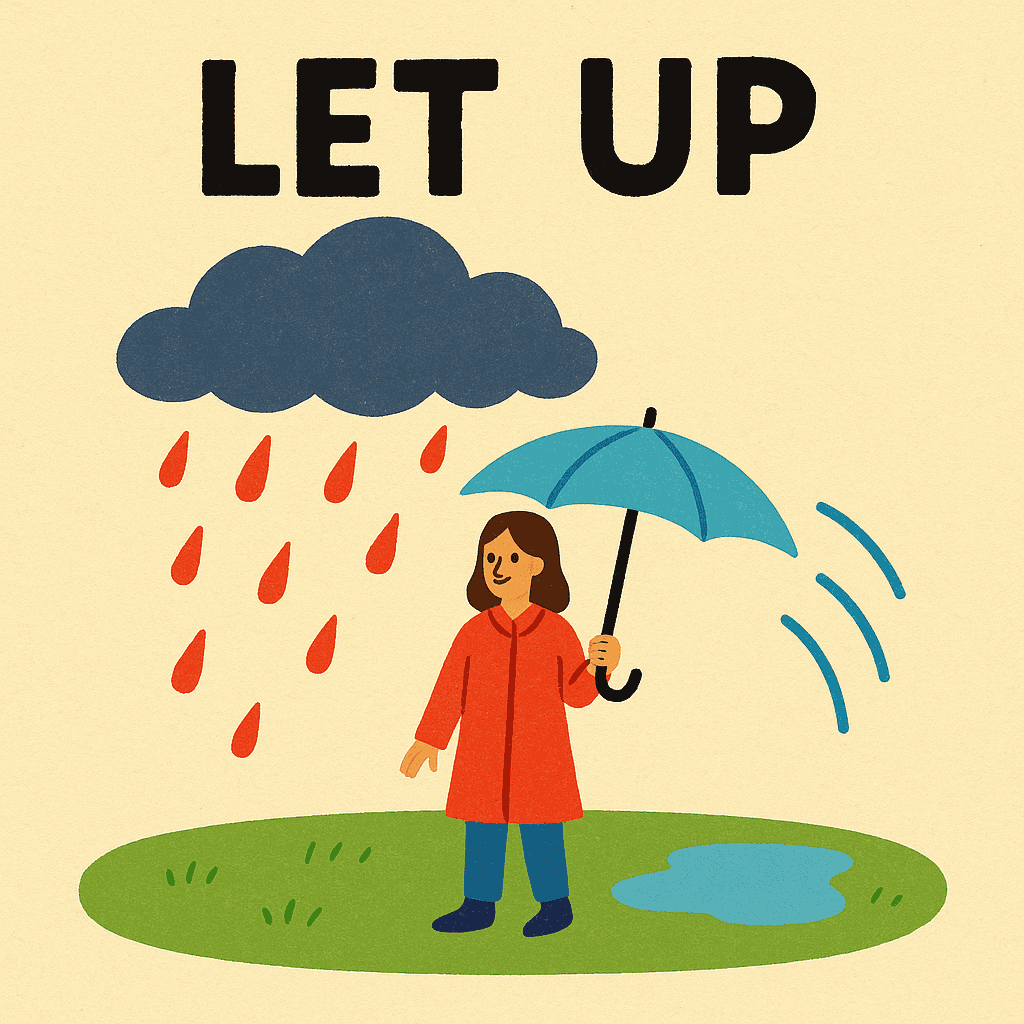Meaning
The phrasal verb “let up” means to become less intense, to weaken, or to stop gradually. It can also mean to give someone a break, ease pressure, or stop being strict.
Grammar and Usage
- Intransitive phrasal verb: "let up" is used without a direct object.
- Commonly used with subjects like rain, wind, pressure, pain, work etc.
- Also used figuratively in conversations when referring to relaxing pressure or effort.
Patterns:
- Something lets up → “The rain finally let up.”
- Let up on (sb/sth) → “The teacher didn’t let up on the homework.”
Common Phrases
- The rain let up
- The pressure won’t let up
- He won’t let up on me
- Work never seems to let up
Collocations
- Rain/Storm/Weather + let up
- Pain/Headache + let up
- Pressure/Workload + let up
- Let up on + someone/something
Examples
- The rain finally let up after three hours.
- The pain in my back hasn’t let up all day.
- Work has been so busy lately; it just doesn’t let up.
- The coach refused to let up on the players, even during training.
- I wish my boss would let up on me a little.
- The storm let up enough for us to go outside.
- She kept studying hard and never let up until the exam was over.
- The pressure won’t let up until we finish the project.
Synonyms or Related
- ease off
- die down
- abate
- slacken
- relent
Antonym
- intensify
- build up
- increase
- tighten up
